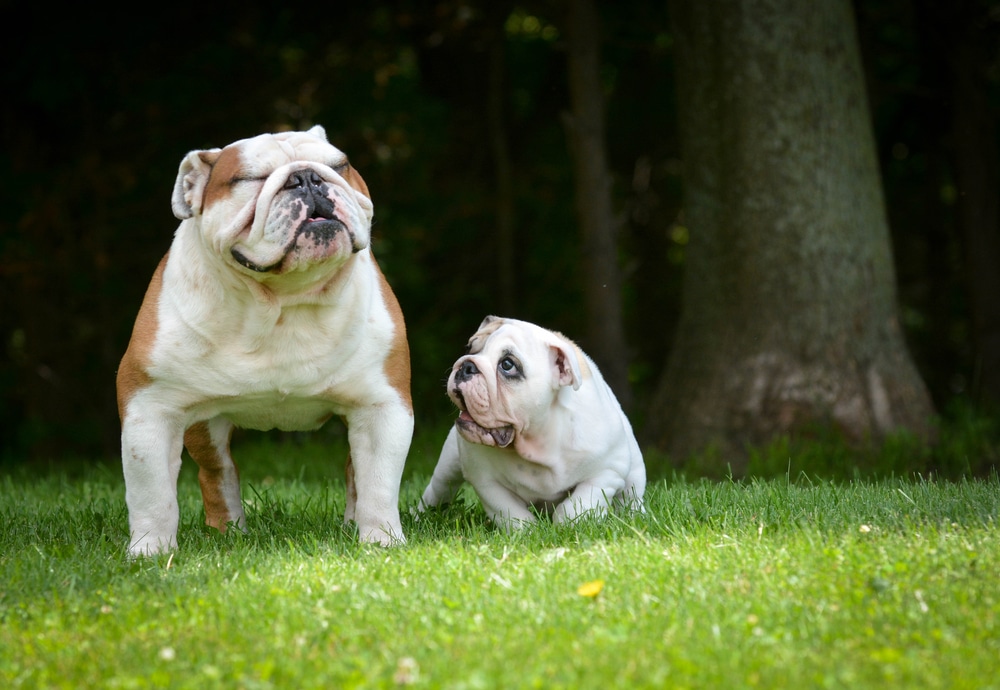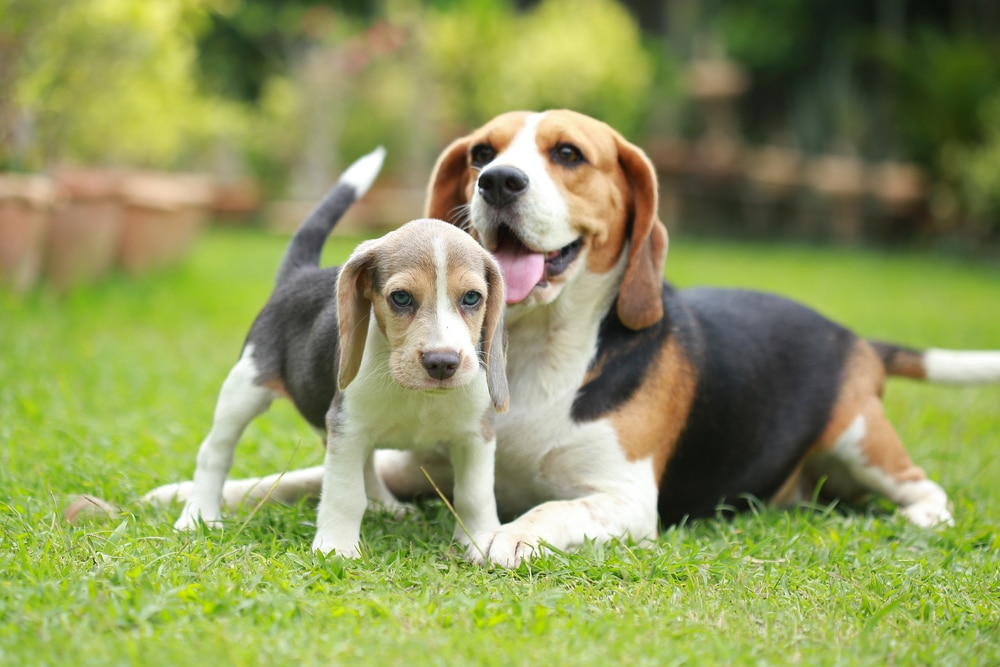Dogs make wonderful companions, and when they are puppies, they bring joy to our lives in so many ways. It’s not always easy to determine when your pup has transitioned out of the “puppy stage.” So, at what point is a dog no longer considered a puppy?
Once your dog reaches an age between 12 to 18 months, it is no longer considered a puppy. They start becoming more independent, often wanting to explore and learn on their own. As your pup grows in size and matures, they become an adult dog. During the transition from puppy to adult, it’s important to monitor your pup’s health and development.
Table of Contents
Factors That Determine When A Dog Is No Longer Considered A Puppy
The transition from puppy to adult dog is different for each breed and can depend on a variety of factors like size, maturity rate, weight, and age. We’ve listed some of the most common ways to determine when your pup is no longer considered a puppy below.
Physical Appearance And Size
The size and physical appearance of a dog are the most obvious indicators that they are no longer considered a puppy.
Adult dogs typically have broader heads, sleeker coats, and thicker bones than puppies do.
When these changes occur, it is often an indicator the pup has stopped growing and can be considered an adult.
Behavioral Development And Maturity
Puppies are more energetic and playful than adult dogs, but once they reach adulthood, they tend to become calmer and less energetic.
A dog’s puppyhood can be said to end when it reaches a certain behavioral development and maturity level. Behaviorally, this varies depending on the individual dog and the breed. Certain breeds, such as giant dogs like Great Danes, take much longer to mature than smaller dogs.
Generally, a dog can be considered to have reached maturity when it reaches 2-3 years old. On the other hand, some breeds can mature earlier than others, with toy breeds like Chihuahuas reaching maturity by 12-18 months.
Maturity can be judged by behavior as well, such as training success and increased ability to play with other dogs or humans without overly aggressive tendencies.
The rate at which the dog’s behavior develops is usually an indicator of when it can be considered a full-grown adult. It’s important to recognize when these changes happen so that appropriate training and discipline techniques can be used from then onward.
Sleep Habits Change
Puppies tend to sleep more than adult dogs, usually between 16-20 hours per day. As they transition into adulthood, they start needing less sleep and are able to be awake for longer periods of time.
Weight Gain
As they age, puppies will start to gain more weight. Depending on the breed, an adult dog should weigh between 25-65 pounds.
Benefits Of Knowing When Your Dog Is An Adult

Knowing when your dog has reached adulthood can be beneficial in a number of ways.
Better Understanding Of Your Dog’s Behavior
Once a pup has reached adulthood, its behavior can become more consistent and predictable. Knowing exactly when your pup becomes an adult will allow you to anticipate how they may react in certain situations and be better prepared to deal with any behavioral issues.
Appropriate Feeding Habits And Nutrition
Different breeds of dogs have different nutritional needs, so knowing when your pup has reached adulthood is important to help ensure they get the right foods and portion sizes to keep them healthy.
Right Exercise Level For Their Age
Adult dogs need more exercise than puppies to stay healthy, but puppies can easily overdo it. Knowing when your pup is an adult will help you adjust the amount of exercise they are getting to make sure it is appropriate for their age.
Appropriate Training
Different breeds and different ages require different levels of training. Knowing when your pup has reached adulthood will allow you to begin tailoring your training methods to better suit their age and breed.
Scheduling Regular Check-Ups
Knowing when your pup is an adult will help you ensure they get the proper care they need to stay healthy. Regular check-ups with a veterinarian can help identify potential health issues before they become serious problems.
Appropriate Discipline Methods
Different ages require different kinds of discipline. While puppies may respond better to positive reinforcement and rewards, adult dogs need a more authoritative approach. Knowing when your pup is an adult will allow you to use the right kind of discipline for their age.
Ensuring Safety
Puppies are often too young and small to be left alone or in certain situations. Knowing when your pup is an adult will help determine if they are mature enough to be left home alone or unsupervised in certain situations.
Maintaining Proper Vaccinations
Vaccinations can help keep your pet healthy and prevent the spread of diseases, so making sure they are vaccinated according to their age is important. Knowing when your pup is an adult will help you stay on top of their vaccinations and make sure they get the proper shots for their age.
Planning For Future Medical Needs
Knowing when your pup is an adult will help you plan for any potential future medical issues that may arise. This can help ensure your pet gets the proper care they need to stay healthy and happy.
Reflections On The Journey Of Puppyhood To Adulthood
Reaching adulthood is an important milestone for any pup, and the journey from puppyhood to adulthood can be incredibly rewarding for owners.
Puppies Are Undeniably Adorable
From the moment they enter our lives, it’s hard not to think of them as just a cute little furball that needs all your attention and love. But puppies grow up fast, and soon enough, they become adult dogs with distinct personalities.
Seeing Them Grow And Learn
It’s amazing to witness your pup grow into its unique being and learn all the tricks you taught it as a puppy.
Saying Goodbye To The Puppy Stage
It can be difficult to say goodbye to that precious little pup you once had, the one that depended so much on you to survive. It’s a bittersweet journey but an essential part of life with our canine companions.
Farewelling puppyhood is never easy, but it’s a necessary part of life and a journey worth reflecting on. No matter how much time passes, our furry friends will always be puppies at heart, and we will cherish these memories forever.
In Conclusion: When Is A Dog Not Considered A Puppy?
Your pup may be transitioning into adulthood, but it doesn’t mean you can’t still enjoy all the same wonderful companionship and joy that comes with having a puppy. After all, dogs remain cheerful and loving companions for life! So, make sure to cherish every moment of your pup’s life, no matter how old they get (and especially as they get older!).
A good way to keep track of your dog’s growth is by taking pictures and videos during their first year as a reminder of all the milestones they have achieved. This can help you appreciate how far your pup has come since they were a puppy.
How has your experience been with watching your puppy transition into adulthood? Do you have any tips or advice that could help other pet owners? Share them in the comments below! We’d love to hear them.
